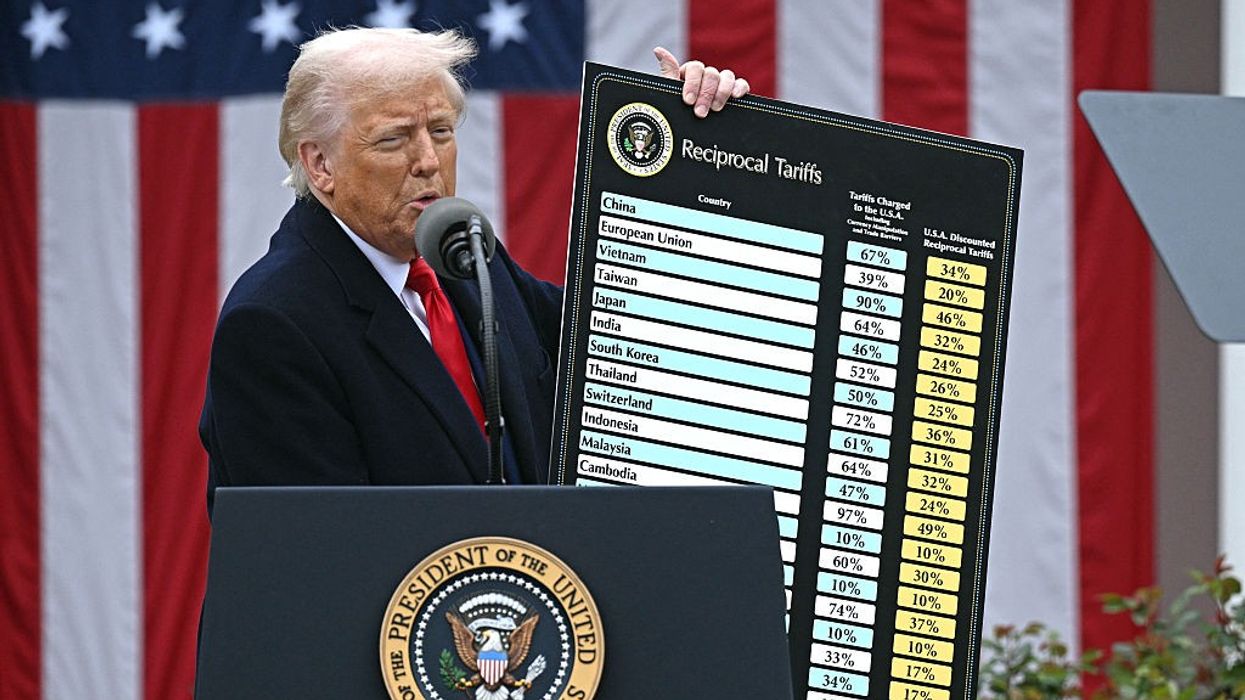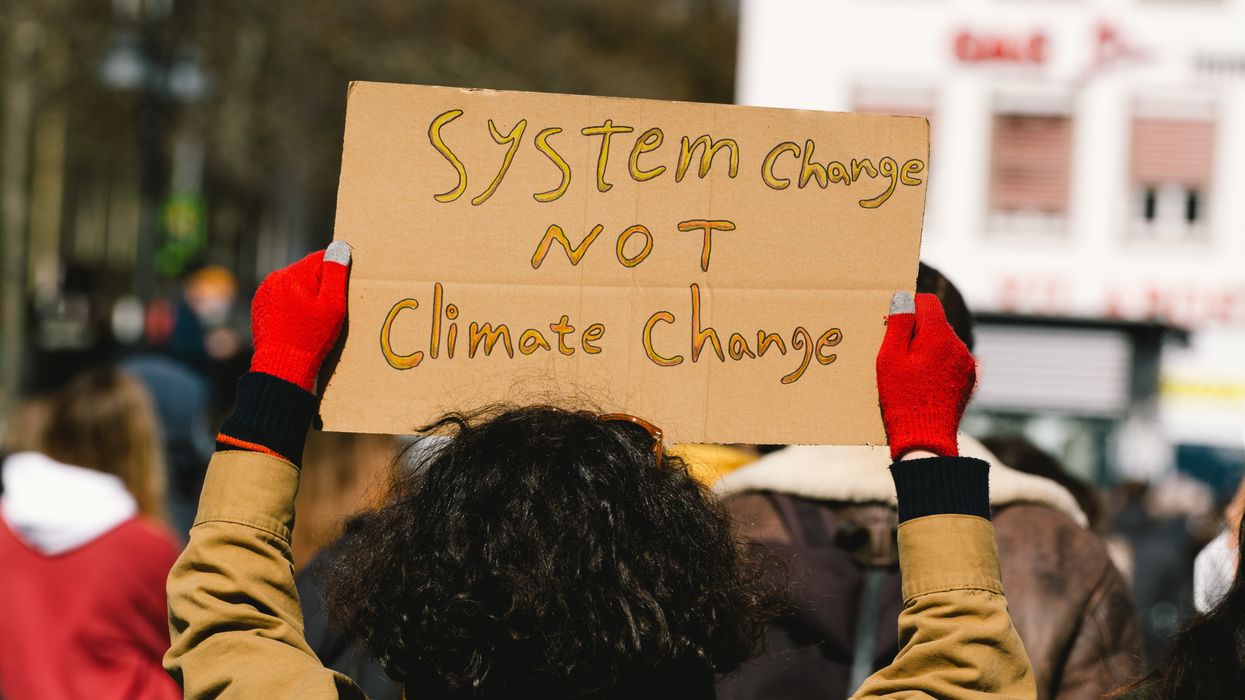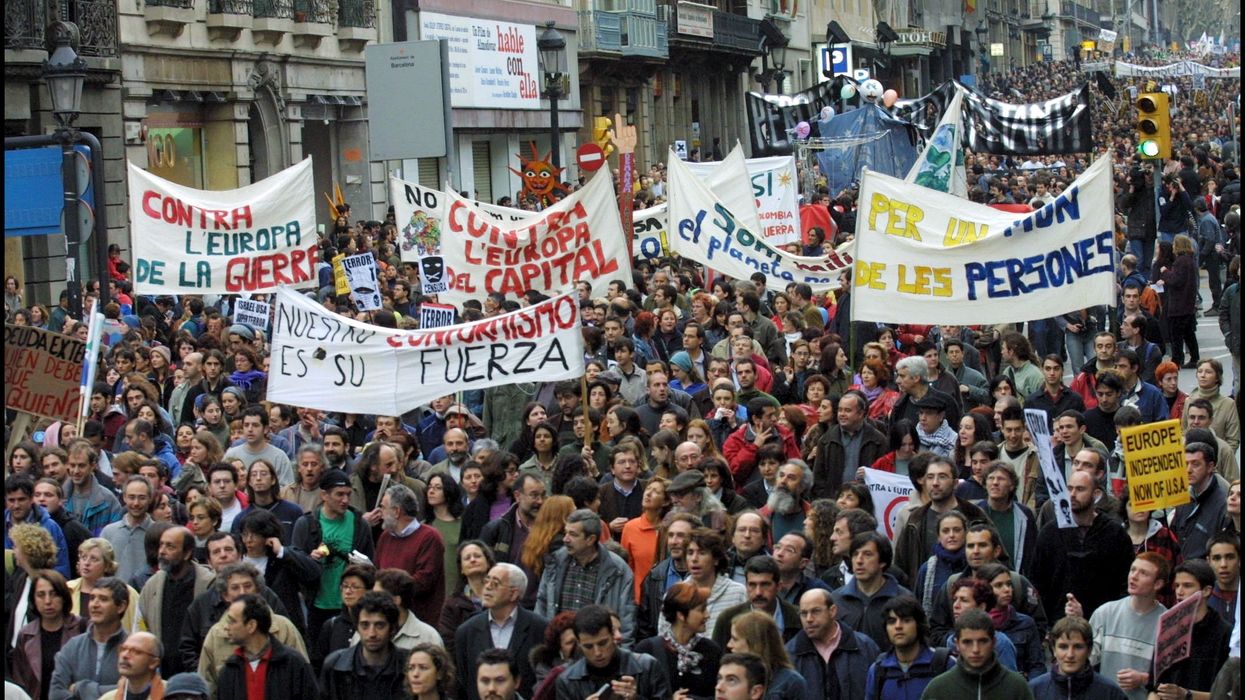C. J. Polychroniou: The first thing that stands out about neoliberal globalization is that it has led to an extremely high degree of economic inequality by altering patterns of income distribution and resource allocation while at the same time undermining economic and social rights. As Miatta Fahnbulleh put it a few years back in an essay that appeared in Foreign Affairs, the system “is not working in the interest of the majority of people.” The actual record of neoliberal globalization on economic growth has also been quite dismal, with postwar “managed capitalism” outperforming the neoliberal model on every count. On top of that, under the form of globalization prescribed by neoliberalism “the average global temperature has risen relentlessly,” as Robert Pollin has pointed out. Neoliberal globalization has been bad for people and the environment alike.
Trump’s domestic agenda is the most neoliberal since the onset of neoliberalism.
As far as the current world order is concerned, it would be hilarious if it weren’t so tragic. We have a world in permanent crisis literally since the end of the Second World War, with the nuclear sword of Damocles hanging over humanity’s head. The Doomsday Clock is now closer than ever to midnight. The current war in Ukraine, the annihilation of Palestinians in Gaza and the seizing of land in the occupied West Bank by violent religious extremists under the protection of the Israeli army speak volumes of the dramatic failure of the United Nations and the so-called international community. There is no lawful world order. International law only applies when it suits the strong.
Alexandra Boutri: Has neoliberalism’s model of globalization run its course?
C. J. Polychroniou: The current system has been in a terminal state since the outbreak of the global financial crisis of 2007-08. The resurgence of right-wing nationalism across the globe is interrelated to the profound contradictions built specifically into the neoliberal version of globalization. The backlash against globalism by the likes of U.S. President Donald Trump and his MAGA faction needs to be understood in connection with the changes that are occurring in the world economy. Trump is using protectionism as a means of altering the global supply chain in favor of U.S. production and imposing tariffs to reduce the U.S. trade deficit but is simultaneously unleashing the most vicious form of neoliberalism inside the country. He is attending to the mythology of American Exceptionalism and Manifest Destiny by trying to reassert the dominance of the United States in the world economy while destroying functioning government as part of a plan to axe safety-net programs and letting corporations run roughshod over labor. Trump’s domestic agenda is the most neoliberal since the onset of neoliberalism. It constitutes an open war against working people and social rights, against the poor and the environment. It’s all about making the rich richer and the poor poorer. It’s a domestic agenda based on the politics of astonishing greed and shocking cruelty. Trump’s election therefore does not mean the end of neoliberalism or of globalism.
Alexandra Boutri: Free trade or protectionism? Is this an actual choice for the Left?
C. J. Polychroniou: It depends on what one means by the “left.” You have left-wing liberals, social democrats, left-wing socialists, communists, and anarchists. Left with capital L tends in some circles to refer to the anti-capitalist, socialist-communist-anarchist camp. Personally, I don’t consider the Democrats in the United States or the Social Democrats in Europe as part of the Left. Their loyalty is to capitalism. Hence, they are not agents of transformational change. They want to maintain the existing socioeconomic system but with some modifications in place to make it less disagreeable. The social democratic tale was about capitalism with a human face. It was a popular political program for the first few decades after the end of the Second World War, and it was of course an improvement over laisses faire capitalism and a bourgeois state that catered exclusively to the interests of the capitalist class. Nonetheless, we should be reminded of an old radical dictum: There cannot be democracy, social justice, and equality as long as power belongs to capital.
It may have taken voters quite a long time to realize that the parties of the establishment left had sold out to global capitalism, but when they did, the consequences were cataclysmic in their impact.
The debate regarding free trade versus protectionism is as old as political economy. For what it’s worth, Karl Marx and Friedrich Engels confronted this issue back in the 1840s, in the struggles over the Corn Laws. Marx saw free trade for what it is—i.e., “freedom of capital,” and mocked the claim of free-traders that the absence of tariff barriers would abolish the antagonism among classes. But this does not mean that Marx took the side of protectionism, which he saw as a system to defend the status quo. Thus, as he put it, “One may declare oneself an enemy of the constitutional regime without declaring oneself a friend of the ancient regime.”
Interestingly enough, though, Marx ends up in the end endorsing free trade but purely on political grounds because he saw the free trade system as accelerating the prospects of radical change.
The goal of the Left is to move beyond capitalism by constructing an equitable and sustainable economy and a just world order. Rudolf Hilferding, in his book Finance Capital, published more than a century ago, wrote: "The proletariat avoids the bourgeois dilemma—protectionism or free trade—with a solution of its own; neither protectionism nor free trade, but socialism, the organization of production, the conscious control of the economy not by and for the benefit of the capitalist magnates but by and for society as a whole."
Alexandra Boutri: Until recently, antiglobalization was exclusively associated with parties and movements of the Left. However, internationalism has historically been a core component of the Left’s ideological worldview. What happened to Left internationalism but also to social democratic parties whose collapse coincides with the collapse of the antiglobalization movement and the emergence of right-wing antiglobalism?
C. J. Polychroniou: The antiglobalization movement came to life in the 1990s and peaked during the early 2000s. It was inspired mainly by so-called far-left ideologies which saw free trade agreements, multinational corporations, and international economic organizations such as the World Trade Organization (WTO), the International Monetary Fund (IMF), and the World Bank promoting a new version of colonialism. During those years, millions of people turned out across the world to raise their voice against global corporate power. Center-left and reformist left parties in general did not join the protests against global capitalist expansion for the simple reason that they had embraced neoliberalism and were being showered in turn by campaign cash from big corporations and the financial sector. In a word, they had betrayed the working class in the same manner that the socialist parties had betrayed internationalism in 1914 at the start of the First World War.
The history of European social democracy may be summarized as follows: a period of rather impressive achievements on the social, political, and economic fronts during the first few decades following the end of the Second World, which were made possible because of the role of different actors in the emergence of a social democratic consensus, and capitulation to neoliberal capitalism in the latter part of the 20th century, especially after the end of an era where you had leaders like Willy Brandt in Germany, Bruno Kreisky in Austria, and Olof Palme in Sweden who were undeniably dedicated to the struggle for social justice and economic democracy. The leaders that came after them across the European continent took the position that Keynesian economics no longer had applicability in the new world economic order that had emerged following the collapse of the Bretton Woods system and that fiscal orthodoxy was the way to go. In the 1980s, the so-called socialist governments of Francois Mitterrand in France, Bettino Craxi in Italy, Felipe González in Spain, and Andreas Papandreou in Greece not only failed to carry out even the minimal set of promises they had made to voters during the pre-electoral period, but their economic programs followed the neoliberal prescriptions proposed by the IMF and the World Bank.
The antiglobalization movement of the 1990s was associated with far-left politics and was attacked as such by mainstream media and the establishment parties across the political spectrum. In the eyes of many citizens across Europe, the “left” was still represented by social democratic and socialist parties. It may have taken voters quite a long time to realize that the parties of the establishment left had sold out to global capitalism, but when they did, the consequences were cataclysmic in their impact.
In 2000, 10 out of 15 countries in the European Union still had social democratic or socialist parties in government even though they had abandoned all the traditional social democratic ideas and policies. Nearing the end of the second decade of the new millennium, we could find social democratic parties in government in only two countries in Europe. Even the euro crisis did not help the parties of the traditional left to make a comeback. What was happening instead is that far-right parties were gaining ground across Europe and around the world. The far-right was reinventing itself with a backlash against globalism. The European far-right even adapted the language of the left to its own ends. Of course, it succeeded in doing this by taking advantage of the betrayal of center-left parties as well as of the left’s fractiousness and disunity—issues that have long plagued the left worldwide. Defeating the far-right is, of course, of paramount importance for the future of democracy and of the Left.
The history of Left internationalism is too long and complex to discuss here. Suffice to say, though, that it has both positive and negative aspects. The Second International betrayed the cause of socialism. The Third International, which was created by Vladimir Lenin and Leon Trotsky in 1919, was a powerful force toward world revolution, a major step toward world socialism. However, under Josef Stalin, it became purely an instrument of Soviet state policy to advance the Stalinist view of “socialism in one country.” And the Red Lord officially dissolved the Third International in 1943.
It's hard to revive Left internationalism when the left is fractured and there is so much confusion about what the left even represents in today’s world. Of course, there is a plethora of progressive social movements at the forefront for social change, but the return of Left internationalism inspired by the vision of socialism needs a dramatic turnaround on the global ideological and political landscape.
In the postwar era, Cuban internationalism stands virtually alone as an alternative form of globalization. Still, the Left needs a new internationalism that combines solidarity and the quest for social justice and equality with a global climate change policy. The latter is by far the most important issue facing humanity in the 21st century, and nothing would be of greater importance than if the new Left internationalism was built around taking on the greatest challenge of our times—i.e., preventing Earth from becoming unlivable.




